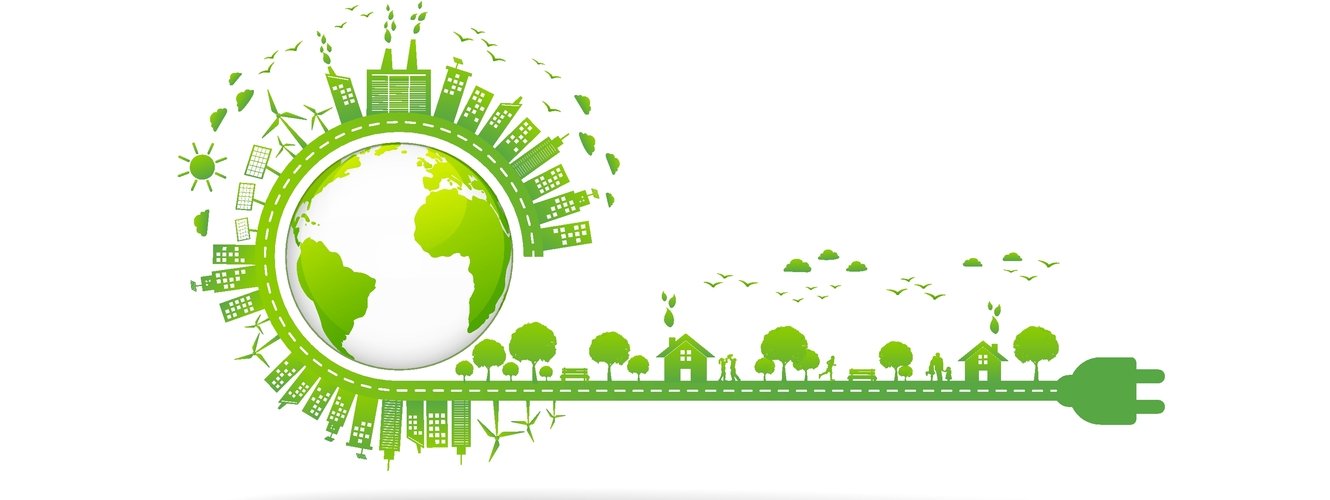
As COP26 hit the headlines this month and the long-awaited Environment Bill became law, Fisher German’s George Simpson looks at how each of these events will be of significant importance to our infrastructure clients.
Our infrastructure clients will now be considering their response to the COP26 outcomes, and the direction of travel is clear – societies, and now most governments, across the world are accepting of the scientific evidence that burning fossil fuels is damaging the planet and changing the climate for the worse. We are on the cusp of this being irreversible and the sense of urgency is shared across the globe.
At Fisher German we have been seeing an increasing number of our infrastructure clients identifying the challenges and opportunities arising from this, writing measures into their business plans to address them. Some of our clients have already started to action these plans and we are involved in the delivery.
One key outcome from the conference that is particularly relevant to the sector is the aspiration to limit temperature rise from pre industrial levels to 1.5 degrees Celsius - down from 2 degrees - through reducing funding of fossil fuels, protecting forests, phasing out coal, phasing out fossil fuel cars and providing financial assistance to poorer countries.
This is already resulting in energy companies moving to new ‘greener technologies’, including investment by gas undertakers in the transition to hydrogen, oil investing in offshore wind and EV charging networks, and electricity companies being driven to invest heavily in upgrading the power networks to cope with the move away from fossil fuels. Water companies are also looking for sustainable solutions to drainage as well as investing heavily in a combined national water resources management strategy that will enable water to be moved efficiently between areas of plenty and those with a risk of shortage.
We are already working on large numbers of these projects across the industry, including for Anglian Water’s Strategic Pipeline Alliance in East Anglia and a number of major electricity connectors from offshore wind farms for National Grid. We are winning substantial new project instructions regularly which creates opportunities for our people - and those wishing to join us - to play a key role in the major changes required to our infrastructure to meet the targets.
The new Environment Act will have a particular impact on water companies. The Act, not to mention the public, is demanding action on sewage discharges to rivers and oceans - a problem that increases with climate change due to the extreme weather events that cause treatment facilities to overflow. This will be no mean feat as full separation of foul sewage from rain water as well as additional treatment facilities will inevitably be required. Sustainable drainage systems are being incorporated into new developments and retrofitted into old ones by the water companies to help with this issue as well as flooding.
The Environment Act is also the legislation that sets a minimum requirement for Biodiversity Net Gain on all development, something which will impact all of our clients. Biodiversity Net Gain requirements aim to address the decline in biodiversity seen in the UK, and as part of the Act, developments must show a net gain in biodiversity of at least 10 per cent as part of any planning consent.
To achieve this, clients will need strategies in place to ensure that the necessary land rights are secured, which is not as simple as it may first appear. Some may want to go further than the 10 per cent net gain that the Act requires, but their compulsory powers do not facilitate this and voluntary arrangements may risk undermining the compulsory acquisition process. We are advising a number of clients on this point and the need for care in achieving the aspiration to do the right thing and comply with the legislation whilst minimising programme risk.
Part of any strategy will be the need to consider habitat improvement off site as a last resort, either on the client’s own land or that of a third party. Fisher German is perfectly placed to advise on this through our online platform, The Green Offset, which links those looking for land to site environmental and offset schemes with landowners who are willing to negotiate them being based on their property.
So as the environment takes centre stage, it’s never been a more exciting time for the infrastructure sector. There are huge investments being made in green energy projects, and Fisher German is one of those at the forefront of making them possible.





